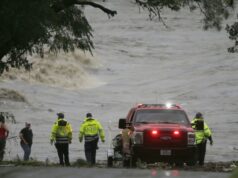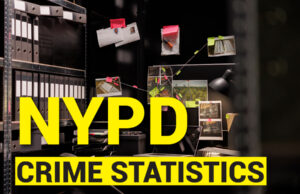Disasters can strike anytime, from natural catastrophes like hurricanes and earthquakes to man-made crises like industrial accidents or terrorist attacks. Have you ever wondered who plans responses to disasters you see on the news? Who determines evacuation routes or decides where supplies should be allocated after a hurricane?
Emergency management professionals are the ones analyzing risks, creating emergency operation plans, and leading coordinated efforts when disaster strikes. Emergency management programs equip students with the diverse skill set needed to mitigate disasters, respond efficiently when crisis strikes, and build community resilience.
If you are interested in a career where you can help people and make a difference when catastrophe hits, then this article is for you.
This article will explore the key benefits of getting a degree in emergency management. We’ll examine how this program provides versatile, real-world training. So let’s dive in and see why this degree can be so worthwhile.
Career Opportunities
One of the main benefits of getting a degree in emergency management is the wide range of career opportunities available to graduates. Emergency management professionals are employed across all levels of government, in the private sector, and at nonprofit organizations.
According to the Bureau of Labor Statistics, emergency management directors earn a median salary of $76,730 per year.
An emergency management degree prepares graduates for careers such as:
- Emergency Manager: Emergency managers develop and implement emergency operations plans, coordinate disaster response and recovery efforts, educate the public about preparedness, and manage departments focused on emergency management.
- Hazard Mitigation Specialist: Mitigation specialists analyze risks and vulnerabilities and develop strategies to reduce potential impacts of future disasters through activities like flood control projects, structural retrofits, and public education campaigns.
- Humanitarian Aid Worker: For those interested in international emergency management, a degree can lead to a career providing disaster relief worldwide. Aid workers assist communities impacted by natural disasters, wars, pandemics, and other crises.
- Public Health Emergency Preparedness Coordinator: These professionals prepare public health departments and communities for medical emergencies, including disease outbreaks and bioterrorism threats.
- School Emergency Manager: School emergency managers are responsible for the safety of students and staff. They perform risk assessments, develop emergency protocols, run drills, coordinate with first responders, and manage incident response and recovery at educational institutions.
Interdisciplinary Expertise
Emergency management degree programs provide an interdisciplinary education that combines theory and practice. Students take courses spanning social sciences, technology, natural sciences, and communications. Common courses include:
- Introduction to Emergency Management: Provides a foundation in the field’s history, key terminology, relevant laws and policies, roles and responsibilities, and relationship to other disciplines.
- Disaster Psychology: Examines how disasters impact the mental health of survivors and responders. Students learn skills for providing psychological first aid.
- Risk Communications: Builds skills for communicating emergency information effectively to the public through media interviews, social media, websites, alerts, and warnings.
- GIS Applications in Emergency Management: Introduces geographic information system (GIS) tools utilized for hazard mapping, damage assessments, modeling/predicting impacts, and emergency planning.
- Emergency Exercise Design: Focuses on different types of emergency preparedness exercises, designing effective drills and simulations, and evaluating results.
Leadership Abilities
Developing strong leadership skills is essential for succeeding in any career field. But few majors strengthen critical leadership abilities as effectively as a degree in emergency management. Managing high-stakes crisis situations requires outstanding skills in decision-making under pressure. An emergency management education builds these capabilities through hands-on training. Here is why this degree produces such highly honed leadership talents:
- When disaster strikes, people look to leaders to take charge and manage the response. Your training will prepare you to step up to chaotic situations and lead.
- During crises, coordinating diverse groups, from government agencies to volunteers, requires outstanding team leadership abilities. You’ll build those here.
- Learning how to keep cool heads, manage stress, and motivate others during emergencies are leadership skills that transfer to any industry.
- Leading preparedness initiatives in schools and communities builds leadership through public outreach and education.
- Gaining the confidence to lead diverse teams in high-stakes environments is a profoundly valuable aspect of this degree. The leadership lessons will serve you for life.
Critical Soft Skills
An emergency management degree helps build many important soft skills beyond just leadership abilities. Some of the key soft skills developed include:
- Communication Skills: Emergency management requires clearly communicating complex information to diverse audiences during high-stress situations. This enhances skills in active listening, speaking clearly, and adapting messaging for different groups.
- Critical Thinking: Assessing emergency scenarios, analyzing risks, and developing response plans involves sharp critical thinking skills. This includes evaluating options, anticipating consequences, and making quick but informed decisions.
- Teamwork: Emergencies require coordinating across agencies, communities, and stakeholders. This builds skills in collaboration, cooperation, and getting groups to work together for a common goal.
- Composure: Emergency managers must stay composed to lead others during chaotic crises. This strengthens the ability to manage stress, exercise emotional control, and think clearly under pressure.
- Adaptability: Each emergency is unique and unpredictable. Being adaptable and able to improvise is essential. This means being open to new solutions, adjusting plans, and handling changing dynamics.
In summary, an emergency management degree equips students with an invaluable mix of soft skills like communication, critical thinking, teamwork, composure, and adaptability that enable effective crisis leadership. These versatile skills are applicable across many careers.
Meaningful Work:
With your degree, you can pursue a fulfilling profession dedicated to protecting lives and communities. As an emergency manager, you’ll work alongside first responders, government agencies, and nonprofits to run preparedness programs, coordinate emergency plans, and manage disaster response. It’s challenging yet gratifying work that utilizes all your skills and makes an impact on society. Let’s explore why this field provides such purpose-driven and fulfilling work.
- You’ll work hand-in-hand with courageous first responders who are the first on the scene when crisis strikes. It’s deeply inspiring.
- Educating families and community groups on disaster readiness gives you a chance to directly empower and protect people.
- Analyzing data and metrics post-disaster helps you identify gaps and improve preparedness regionally. Your work has a massive impact.
- Overseeing the rebuilding and recovery process allows you to continue assisting families to get back on their feet after catastrophe strikes.
- No two days are alike – you never know when the next storm, flood, or fire will strike. It keeps you challenged and engaged.
- This career attracts team players who know how to bring diverse groups together for the common goal of protecting their communities.
If you feel called to serve others and have the skills to think clearly under pressure, emergency management provides incredibly meaningful work. You’ll wake up motivated!
Conclusion
An emergency management degree equips you with so much more than a career foundation. The critical thinking, leadership, resilience, and passion for helping others that you’ll gain deliver lifelong value. Let this program prepare you to actively strengthen your own resilience, empower your community, connect with like-minded professionals, and find purpose in serving others.













